Refrigeration Gases
Refrigeration Gases, also known as refrigerants, are substances used in refrigeration systems to transfer heat from one area to another through a cycle of evaporation and condensation. They absorb heat when evaporating (changing from liquid to gas) and release heat when condensing (changing from gas to liquid). These gases are chosen based on their thermodynamic properties, including their ability to condense and evaporate at specific temperatures, pressure levels, and environmental considerations like ozone depletion potential (ODP) and global warming potential (GWP).
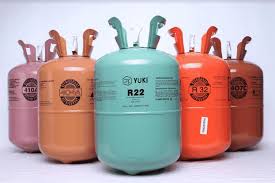
Refrigeration Gases
Role of
- Heat Transfer: Refrigerants absorb heat from the environment at low temperatures (evaporator) and release it at higher temperatures (condenser), facilitating cooling.
- Phase Change: They undergo phase changes (from liquid to gas and vice versa) efficiently, enabling the refrigeration cycle to function.
- Efficiency: Refrigerants affect the system’s efficiency by their ability to transfer heat effectively and their thermodynamic properties.
- Environmental Impact: Their choice impacts environmental factors like ozone depletion and global warming, influencing the environmental footprint of the system.
- Safety: Proper handling and selection ensure safe operation and longevity of the refrigeration equipment.
- Regulatory Compliance: Adherence to regulations governing refrigerant use and disposal ensures environmental protection and compliance with industry standards.
Refrigeration Gases
Advantages of
- Efficient Heat Transfer: Facilitate effective heat absorption and release in refrigeration cycles.
- Versatility: Suitable for a wide range of temperatures and applications, from household refrigerators to industrial cooling systems.
- Thermodynamic Properties: Designed to operate efficiently under varying pressures and temperatures.
- Environmental Considerations: Some modern refrigerants have lower ozone depletion potential (ODP) and global warming potential (GWP), reducing environmental impact.
- Safety: Properly selected and handled refrigerants are safe for use in refrigeration systems.
- Regulatory Compliance: Compliance with international standards and regulations ensures safe and environmentally responsible use.
- Performance: Reliable performance over extended periods with minimal maintenance requirements.
Other Chiller Spares We Manufacture
Scroll Compressor
A scroll compressor is a type of positive displacement compressor that uses two interleaved spiral-shaped scrolls to compress gas. One scroll is stationary,

Semi-hermetic Compressor
A semi-hermetic compressor is a type of compressor where the motor and compressor are enclosed in a single, sealed housing, but unlike fully hermetic compressors,
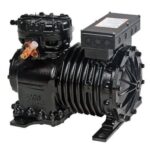
Hermetic Compressor
Hermetic Compressor is a type of compressor widely used in refrigeration and air conditioning systems. It features an airtight housing that encloses both the motor and the compressor,

Screw Compressor
Screw Compressor is a type of rotary compressor that uses two intermeshing helical rotors to compress gas or air. As the rotors rotate, they trap and compress the gas
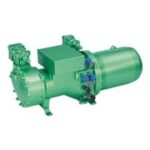
Reciprocating Compressor
A reciprocating compressor is a positive displacement device that compresses gas by using a piston driven by a crankshaft. The piston moves back and forth in a cylinder
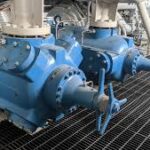
Rotary Compressor
Rotary Compressor is a type of gas compressor that uses a rotating mechanism, such as screws, vanes, or scrolls, to compress gas. The rotating elements trap and compress
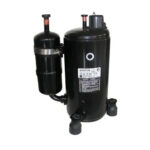
Axil Fan
Axil Fan is a type of mechanical fan commonly used for moving air or gas parallel to the axis of its blades. Unlike centrifugal fans that generate airflow perpendicular to the fan blades
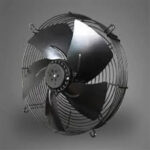
Condenser
Condenser is a key component in refrigeration and air conditioning systems that facilitates the transfer of heat absorbed by the refrigerant to the outside environment.
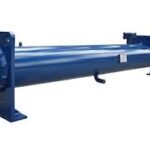
Chiller Pumps
Chiller Pumps, also known as condenser water pumps or circulation pumps, are essential components in chiller systems. Their primary function is to circulate water
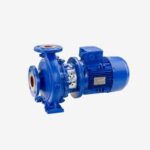
Chiller Control Panel
Chiller Control Panel is a centralized component of a chiller system that oversees and regulates the operation of key components such as compressors, pumps
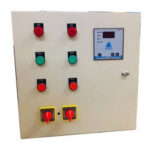
Expansion Valves
Expansion Valves are mechanical devices used in refrigeration and air conditioning systems to regulate the flow of refrigerant into the evaporator. They maintain a controlled reduction

Copper Pipes and Fittings
Copper Pipes and Fittings are commonly used in plumbing and HVAC systems due to their durability, corrosion resistance, and excellent heat transfer properties.

